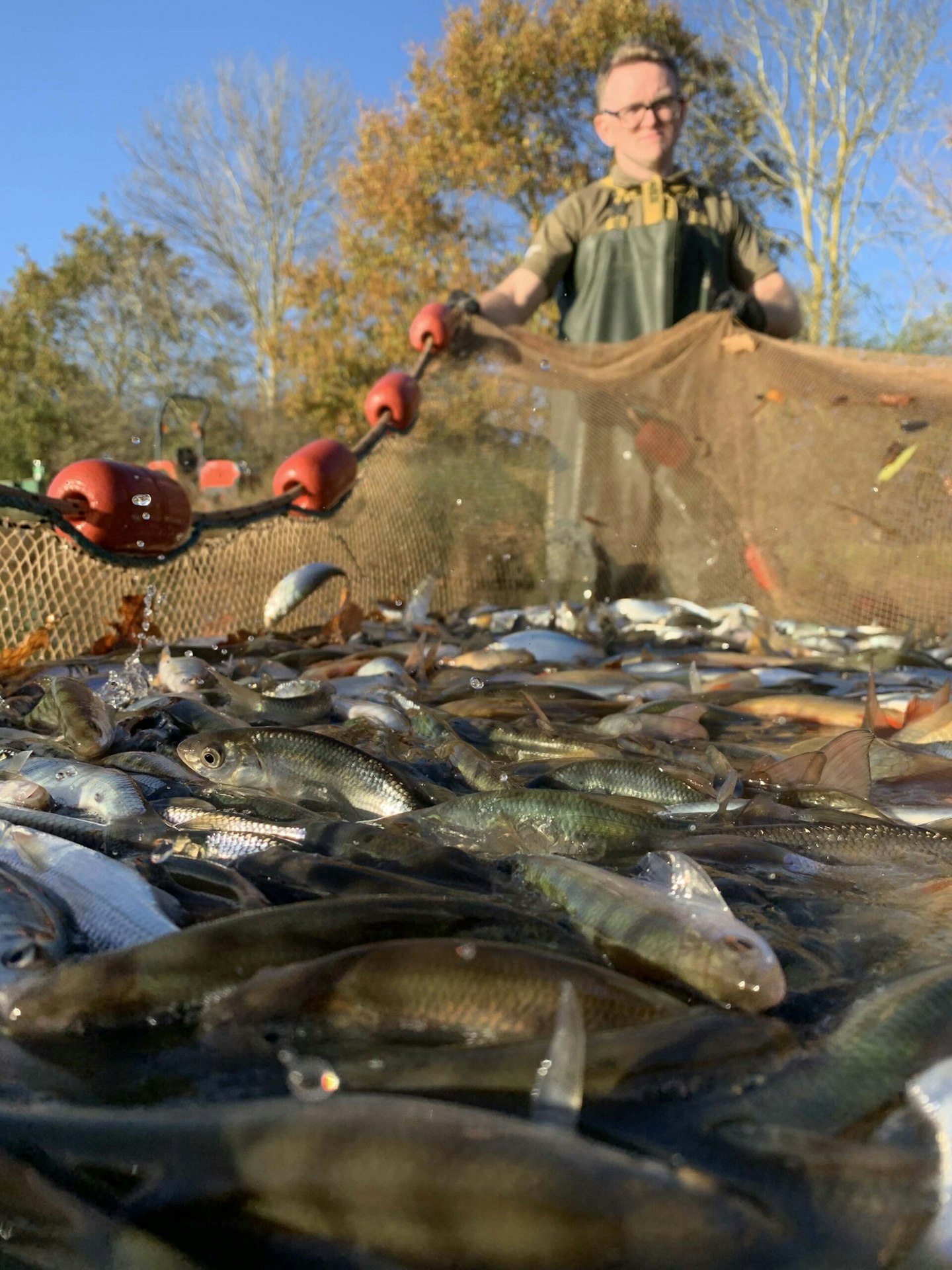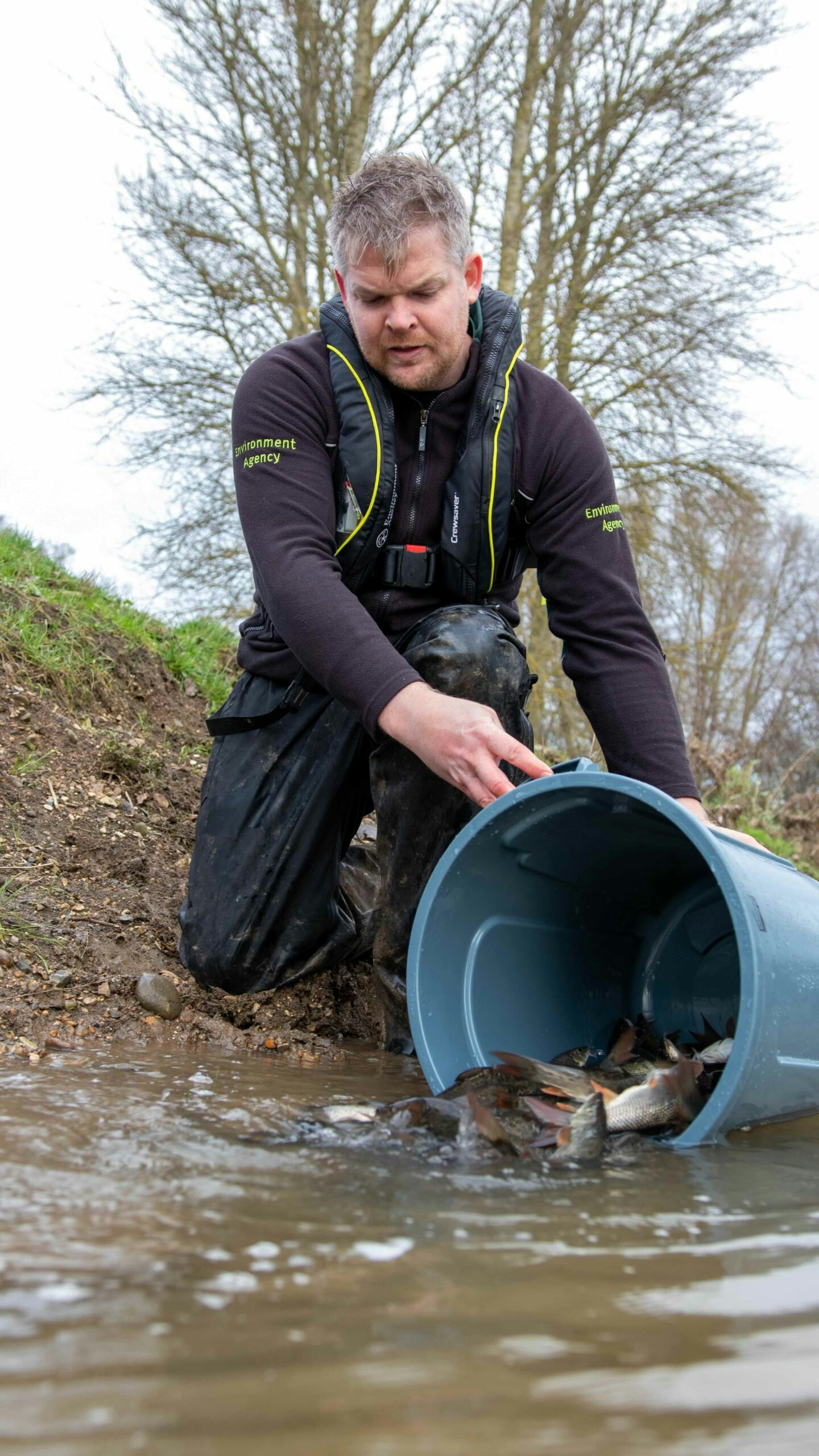You may have noticed recently that your favourite fisheries posting on social media about stocking their waters. But have you ever wondered why they choose to do it in the depths of winter?
While winter may create harsh working conditions for fish farmers and fishery managers, there are many benefits to moving fish when water temperatures are much cooler. The primary reason is stress: the warmer and more active fish are, the more likely they are to become stressed and injure themselves when being netted. Moving them in colder temperatures, when they are less active and less likely to thrash around and become agitated, is beneficial for everyone involved—most importantly, the fish.
FISHING THIS WEEKEND? CHECK OUT THESE GREAT VENUES TO CATCH A RANGE OF SPECIES.

Another important factor is oxygen. In colder water temperatures, oxygen dissolves more readily, and since fish depend on it above all else, it is a crucial consideration for any fish farmer or fishery owner. If fish were moved in the summer, when dissolved oxygen levels are significantly lower, the process would require much more specialised equipment, increasing the risk of complications and fish mortalities. This is especially important if the lake is drained overnight leaving just enough water to cover the fish ready for netting the following morning.
Water is also more abundant in the winter months, which helps refill lakes after they have been drained and limed in preparation for new stock on fish farms. Draining a lake is often easy, but if it cannot be refilled afterward, it can slow down or even halt the entire system—something that is much more likely to happen in the summer.

We asked Dr Paul Garner for his take on winter stockings:
“Most coarse fish are stocked in the winter months when water temperatures are low. This is because they are less active and are easier to catch, transport and introduce."
“Giving the fish chance to settle in before spring gives them time to acclimatise to the venue before the stressful period when water temperatures are rising."
“Winter stocking does not necessarily guarantee that the fish are free from disease, though, and may actually mask some of the outward symptoms which only come to light in the warmer months."
“Health checks are very important, along with considering the effect that the new fish will have on the existing stock of potentially very valuable and irreplaceable fish.”
While stocking fish in winter won’t eliminate all the risks of introducing new stock to a lake, it significantly reduces the chances of problems arising. So, the next time you see fish farmers or fishery managers braving the cold to add fish for you to catch, you'll understand why they choose to endure the harsh conditions rather than doing it when it's more comfortable for them.
IF YOU FISH DURING THE WINTER, HERE IS SOME ESSENTIAL ADVICE ON KEEPING YOUR BIVVY WARM!

